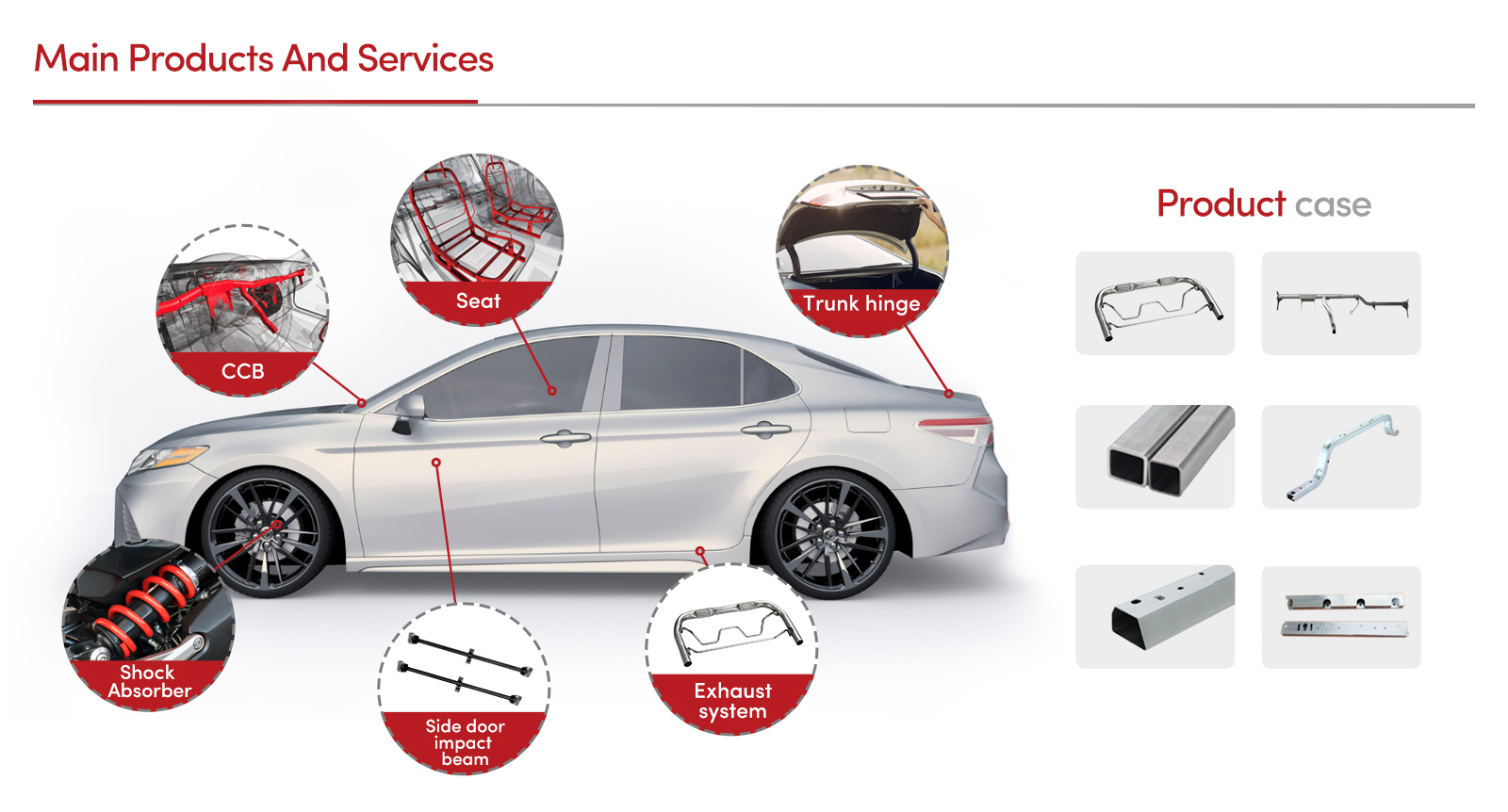precision steel pipe
Dec . 07, 2024 14:15
Precision Steel Pipe The Backbone of Modern Industries
Precision steel pipes have emerged as a fundamental component in various industries, showcasing their importance in mechanical engineering, construction, and manufacturing. Characterized by their high dimensional accuracy and superior mechanical properties, these pipes serve as essential elements in applications requiring durability, reliability, and structural integrity.
What is Precision Steel Pipe?
Precision steel pipes are manufactured using advanced techniques to achieve tighter tolerances compared to standard pipes. Unlike ordinary pipes that may have variations in thickness, diameter, and surface quality, precision pipes are produced to strict specifications. The manufacturing process often involves cold drawing or pilgering, which enhances the mechanical properties and surface finish of the pipe.
The key feature of precision steel pipes is their ability to maintain consistent dimensions. This precision leads to improved efficiency in various applications, as it ensures that components fit together seamlessly, minimizing the need for adjustments during assembly.
Applications of Precision Steel Pipes
1. Automotive Industry In the automotive sector, precision steel pipes are vital for fuel injection systems, hydraulic systems, and structural components. The high strength-to-weight ratio of these pipes allows for lighter vehicle designs without compromising safety and performance.
2. Aerospace Sector The aerospace industry demands materials that withstand extreme conditions. Precision steel pipes are used in aircraft propulsion systems and structural frames, where reliability and strength are paramount. Their ability to endure high pressures and temperatures makes them an ideal choice for components exposed to harsh environments.
precision steel pipe
3. Construction and Infrastructure In construction, precision steel pipes are often used in scaffolding, framing, and piping systems. Their strength and durability make them suitable for supporting heavy loads and resisting environmental stressors. Additionally, the accuracy of precision pipes contributes to the construction of earthquake-resistant structures.
4. Oil and Gas Industry The oil and gas sector requires materials that can withstand corrosive environments and high pressures. Precision steel pipes are used in drilling operations, pipelines, and refining processes. Their ability to maintain structural integrity under tough conditions is crucial for safety and efficiency in these operations.
5. Manufacturing and Chemical Processing Precision pipes are used in manufacturing settings for transporting fluids, gases, and materials. Their smooth surfaces reduce friction, enhancing flow rates and performance in chemical processing and manufacturing plants.
Advantages of Precision Steel Pipes
The advantages of precision steel pipes extend beyond their initial applications. Their durability leads to a longer lifespan, reducing the frequency of replacements and maintenance costs. The use of precision pipes also reduces waste during manufacturing and installation, as they fit better and require fewer modifications.
Additionally, the consistent quality of precision steel pipes plays a critical role in ensuring product reliability across various sectors. This consistency is particularly important in industries where safety is paramount, such as aerospace and automotive applications.
Conclusion
In conclusion, precision steel pipes serve as a backbone for modern industries, providing solutions that enhance efficiency, safety, and performance. As technology advances and industries evolve, the demand for precision pipes will likely grow, as they offer numerous benefits that cater to the specific requirements of each sector. By investing in precision steel pipes, companies can optimize their operations and deliver high-quality products, ultimately contributing to innovation and advancement in the global marketplace. As we look to the future, the role of precision steel pipes will undoubtedly become increasingly significant, reinforcing their status as a crucial element in the world of engineering and manufacturing.
 Afrikaans
Afrikaans  Albanian
Albanian  Amharic
Amharic  Arabic
Arabic  Armenian
Armenian  Azerbaijani
Azerbaijani  Basque
Basque  Belarusian
Belarusian  Bengali
Bengali  Bosnian
Bosnian  Bulgarian
Bulgarian  Catalan
Catalan  Cebuano
Cebuano  Corsican
Corsican  Croatian
Croatian  Czech
Czech  Danish
Danish  Dutch
Dutch  English
English  Esperanto
Esperanto  Estonian
Estonian  Finnish
Finnish  French
French  Frisian
Frisian  Galician
Galician  Georgian
Georgian  German
German  Greek
Greek  Gujarati
Gujarati  Haitian Creole
Haitian Creole  hausa
hausa  hawaiian
hawaiian  Hebrew
Hebrew  Hindi
Hindi  Miao
Miao  Hungarian
Hungarian  Icelandic
Icelandic  igbo
igbo  Indonesian
Indonesian  irish
irish  Italian
Italian  Japanese
Japanese  Javanese
Javanese  Kannada
Kannada  kazakh
kazakh  Khmer
Khmer  Rwandese
Rwandese  Korean
Korean  Kurdish
Kurdish  Kyrgyz
Kyrgyz  Lao
Lao  Latin
Latin  Latvian
Latvian  Lithuanian
Lithuanian  Luxembourgish
Luxembourgish  Macedonian
Macedonian  Malgashi
Malgashi  Malay
Malay  Malayalam
Malayalam  Maltese
Maltese  Maori
Maori  Marathi
Marathi  Mongolian
Mongolian  Myanmar
Myanmar  Nepali
Nepali  Norwegian
Norwegian  Norwegian
Norwegian  Occitan
Occitan  Pashto
Pashto  Persian
Persian  Polish
Polish  Portuguese
Portuguese  Punjabi
Punjabi  Romanian
Romanian  Samoan
Samoan  Scottish Gaelic
Scottish Gaelic  Serbian
Serbian  Sesotho
Sesotho  Shona
Shona  Sindhi
Sindhi  Sinhala
Sinhala  Slovak
Slovak  Slovenian
Slovenian  Somali
Somali  Spanish
Spanish  Sundanese
Sundanese  Swahili
Swahili  Swedish
Swedish  Tagalog
Tagalog  Tajik
Tajik  Tamil
Tamil  Tatar
Tatar  Telugu
Telugu  Thai
Thai  Turkish
Turkish  Turkmen
Turkmen  Ukrainian
Ukrainian  Urdu
Urdu  Uighur
Uighur  Uzbek
Uzbek  Vietnamese
Vietnamese  Welsh
Welsh  Bantu
Bantu  Yiddish
Yiddish  Yoruba
Yoruba  Zulu
Zulu 












